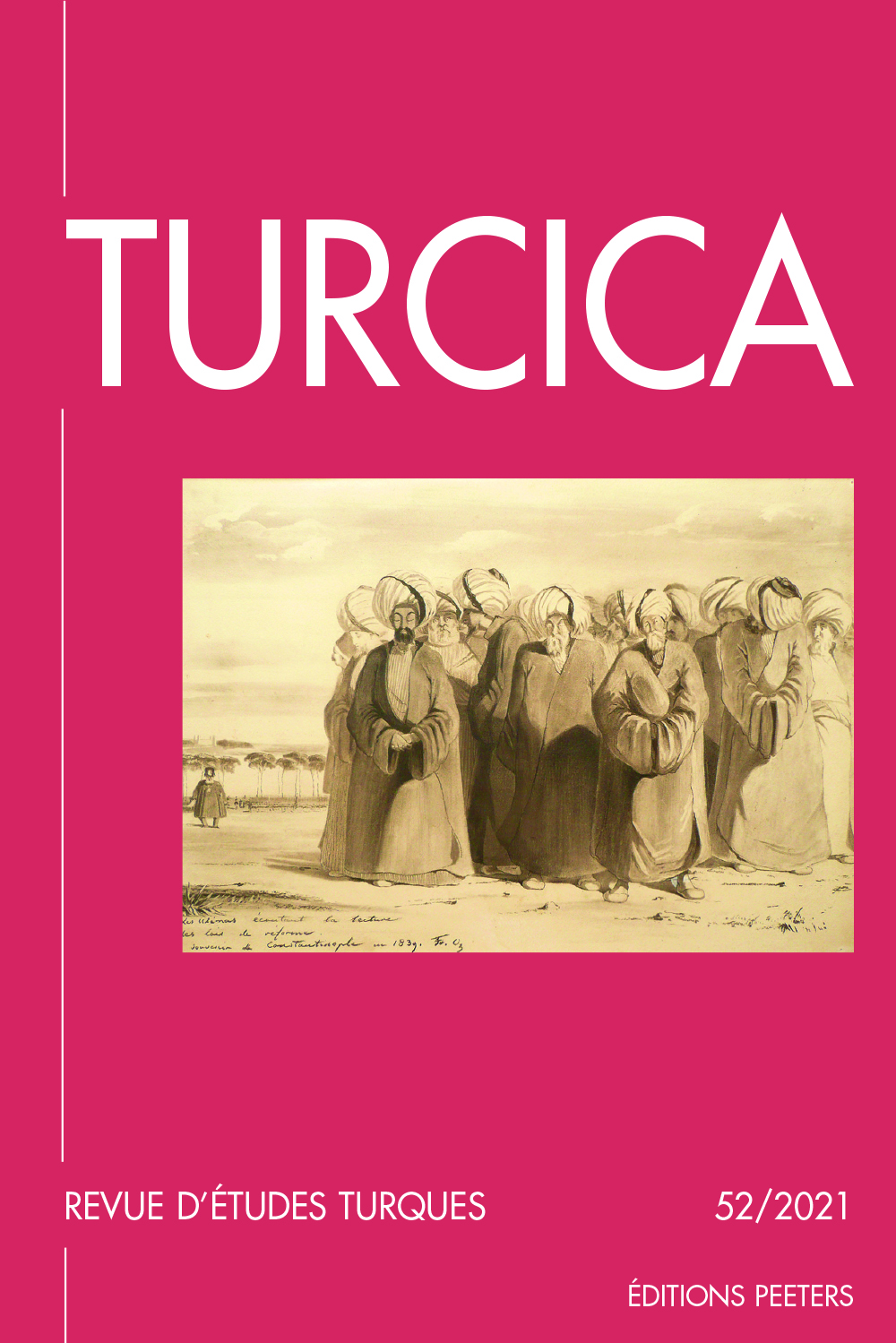 previous article in this issue previous article in this issue | next article in this issue  |

Preview first page |
Document Details : Title: Merzifonlu Kara Mustafā Pasha and the Stanton and Bishop Affair at Aleppo (1664-67) Author(s): HEYWOOD, Colin Journal: Turcica Volume: 51 Date: 2020 Pages: 37-70 DOI: 10.2143/TURC.51.0.3288386 Abstract : The present article employs some of the well-known techniques of micro-historical research to investigate a letter written in 1664 by Kara Mustafa Pasha, kaymakam and future Ottoman grand vizier to the then English ambassador at the Porte, the earl of Winchilsea. The letter’s subject-matter is the criminal activities of William Stanton and Hawley Bishop, two absconded English merchants from the Levant Company’s factory at Aleppo, and the demands made on Winchilsea by Kara Mustafa Pasha for financial restitution against the losses sustained by an Aleppine Muslim merchant in the case. Applying Edoardo Grendi’s concept of the 'significant exception' to the document in question allows us to ask a number of questions concerning the nature and provenance of the document itself, as a solitary archival survival in England of a document from Kara Mustafa Pasha, and to unravel the tangled documentary trail generated by the two criminals, who themselves were also 'significant others' in the context of the membership of English factory at Aleppo in these years. Le présent article applique les techniques bien connues de la micro-histoire pour exploiter une lettre écrite en 1644 par Kara Mustafa Pasha, kaymakam et futur grand vizir ottoman, à l’intention de l’ambassadeur anglais alors en poste à la Porte, le comte de Winchilsea. Cette lettre traite des activités criminelles de William Stanton et Hawley Bishop, deux marchands anglais en fuite appartenant à la communauté marchande de la Levant Company à Alep, et des demandes de dédommagements financiers présentées à Winchilsea par Kara Mustafa Pasha en réparation des pertes subies de leur fait par un marchand musulman d’Alep. L’application à ce document du concept dû à Edoardo Grendi d’«exception significative» permet de poser un certain nombre de questions sur la nature et la provenance du document lui-même, unique survivance archivistique en Angleterre d’un document émanant de Kara Mustafa Paşa, et de démêler le fouillis des traces documentaires laissées par les deux criminels, eux-mêmes des «autres significatifs» au sein des membres de la communauté marchande anglaise à Alep en ces années-là. |
 |


